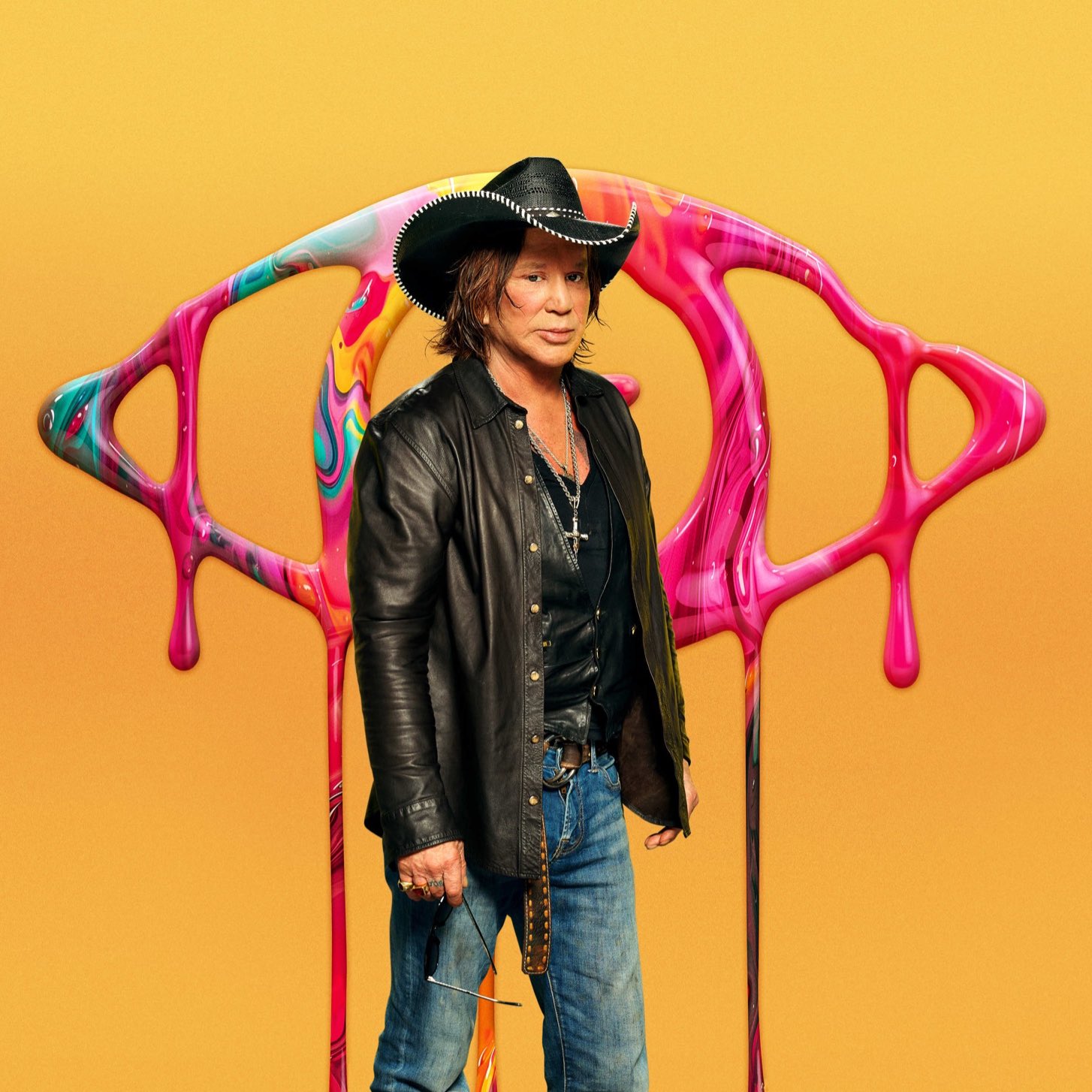
Digital Editor Archie Marks examines Mickey Rourke’s controversy on Celebrity Big Brother
Content Warning: mentions of sexual assault & harassment, homophobia, misogyny, racial intimidation
Such is the life of the strongman that he is doomed to fade into obscurity. It seemed, for a time, that Mickey Rourke might be destined for that very fate; having once had success in the realms of both professional boxing and acting, he’s better known these days for his work in direct-to-video features, his premature departure from The Masked Singer, and a one-time appearance in the Marvel Universe.
Rourke chose the same path as many a British celebrity that’s had work dry up: reality TV.
Presumably with this in mind, Rourke chose the same path as many a British celebrity that’s had work dry up: reality TV. So, in early April this year, off he went to participate in the twenty-fourth series of Celebrity Big Brother. Yet, Rourke’s appearance has been marred by controversy, and he was – after several warnings – ejected from the house altogether on the sixth day.
We know that Celebrity Big Brother is a breeding ground for controversy – why wouldn’t it be? Put a group of people of varied backgrounds and ages in a room, and you’d naturally get tension akin to bringing up the topic of trans rights at a family barbecue. These differences in background reached a boiling point during the much-publicised 2007 series, which saw housemates – including Jade Goody – racially intimidate Indian actress Shilpa Shetty. The media coverage in 2007 (which was, it should be noted, laced with misogyny) threw Goody to the wolves and made her ‘the most hated woman in Britain’ as a result of her comments. Why hasn’t Mickey Rourke been shown the same condemnation?
For the uninitiated, here’s a recap. Since the series premiere on 7 April, Rourke has: inappropriately touched co-host AJ Odudu live on air; made openly homophobic remarks to housemate JoJo Siwa; used ‘inappropriate sexual language’ when speaking to Ella Rae Wise; and physically & verbally threatened Chris Hughes. Though Rourke had been formally warned by producers after the Siwa saga, it was only after the latter two incidents that he was ejected from the house.
it was completely irresponsible of ITV to have not ejected Rourke after his first offence.
Credit where credit’s due: there’s been much pushback against Rourke from the beginning, with Twitter commentators and journalists alike campaigning for his removal. But I’ve seen just as much in the way of defence of Rourke, with outlets like The Sun branding ITV ‘woke’ for ejecting him from the house when they did. As the political pendulum swings eerily toward fascism, the case of Rourke is, for me at least, the latest marker of a world that’s increasingly tolerant of abuse towards marginalised groups.
I’ll propose, too, that it was completely irresponsible of ITV to have not ejected Rourke after his first offence. Odudu, as Rourke manhandled her and pulled her towards him, nobly laughed it off; similarly, Siwa – after Rourke used a homophobic slur and threatened to sexually assault her – was upset but accepted his apology. As a queer person myself, I – along with many of my female friends – can relate to having a straight man exert their dominance over you, by way of physical & verbal intimidation, as well as having to let it slide for fear of being threatened any further. It was clear from the Odudu incident that Rourke shouldn’t, in my opinion, have been allowed to step into the house.
It’s perhaps telling that Rourke was not ejected after he accosted a woman of colour (Odudu) or a queer woman (Siwa), but only after his confrontation of the straight white contestants (Wise & Hughes). That’s not to undermine the severity of the threats made towards the latter two, nor to downplay ITV’s decision to eventually (if belatedly) send Rourke packing. But it begs the question: why did producers give Rourke a second, then third, chance after his encounters with Odudu and Siwa? Were they collateral damage that only mattered when Rourke’s threats touched both heterosexuality and whiteness?
I’d argue good TV isn’t worth it when people are being threatened, no matter how good the ratings are.
In another universe, Rourke’s ‘banter’ never crested above a playful nature, never became disparaging or threatening. It was only ever ‘good TV’. And, to some people, maybe that’s all Rourke ever was. But I’d argue good TV isn’t worth it when people are being threatened, no matter how good the ratings are. Not only are you risking the safety of the candidates, you’re also allowing Rourke to set a dangerous precedent for millions of viewers – a precedent that continues to facilitate this kind of offensive behaviour. In simply allowing Rourke’s comments to be televised, these types of remarks risk becoming normalised.
Maybe we’re part of the problem, too. In watching the show, in dissecting it on social media, in me writing this piece and in you reading it, we’re helping Rourke accomplish his ostensible goal of renewed relevance. People have been, more than they have in a while, talking about him, and any press is good press. The real question, then, isn’t how Mickey Rourke got away with his behaviour for so long; it’s why we keep giving men like him the platform to try.
More from Redbrick TV:
The Dark Side of Streaming in Black Mirror’s ‘Common People’

Comments